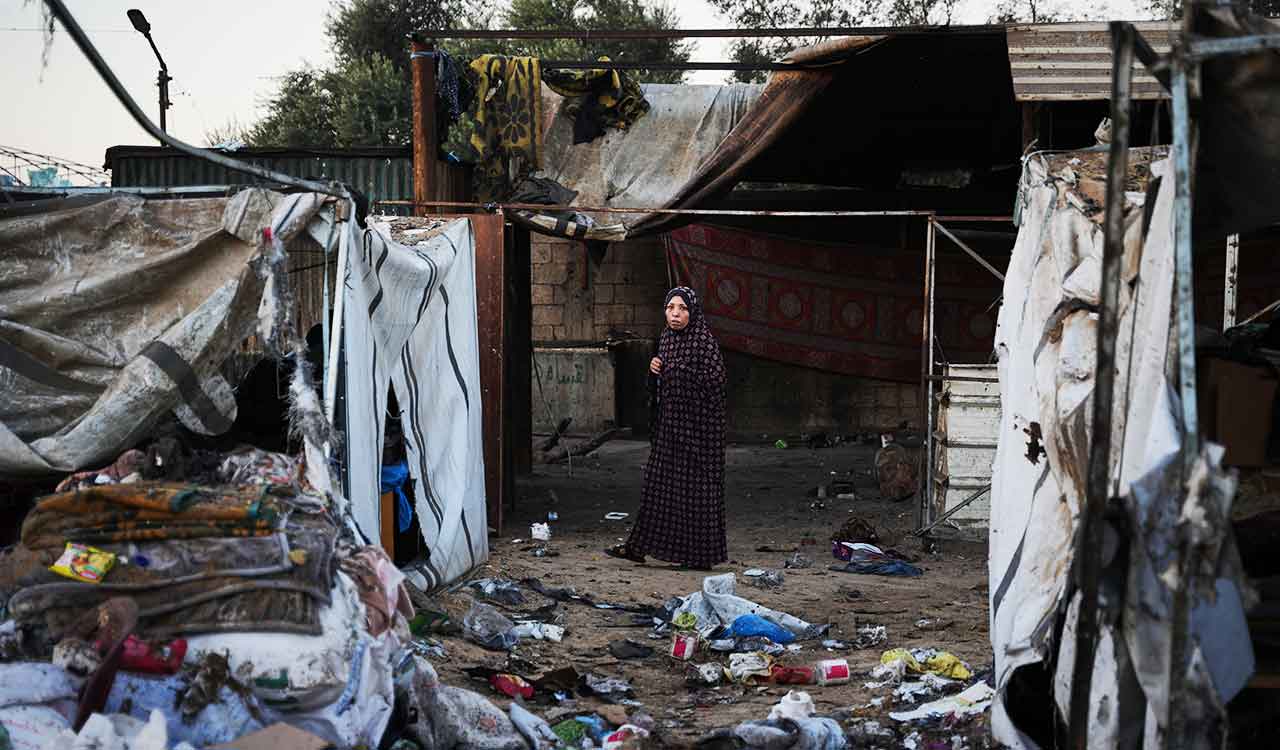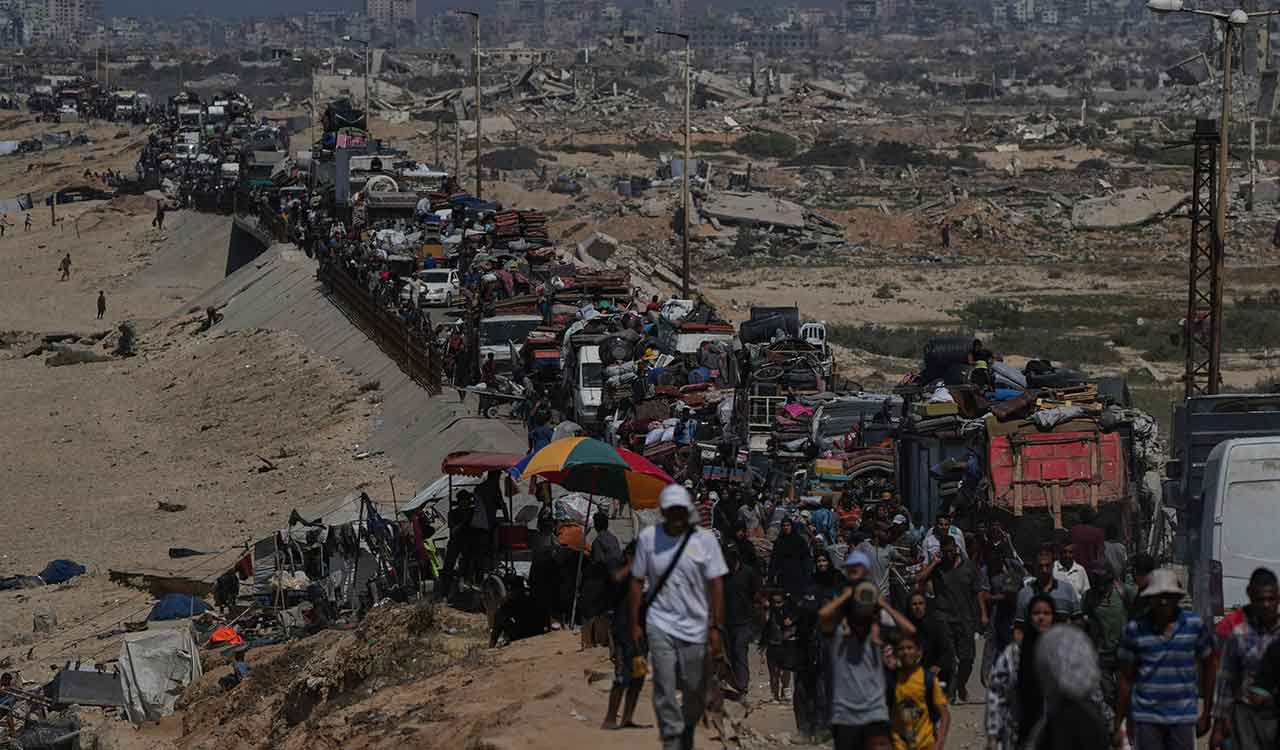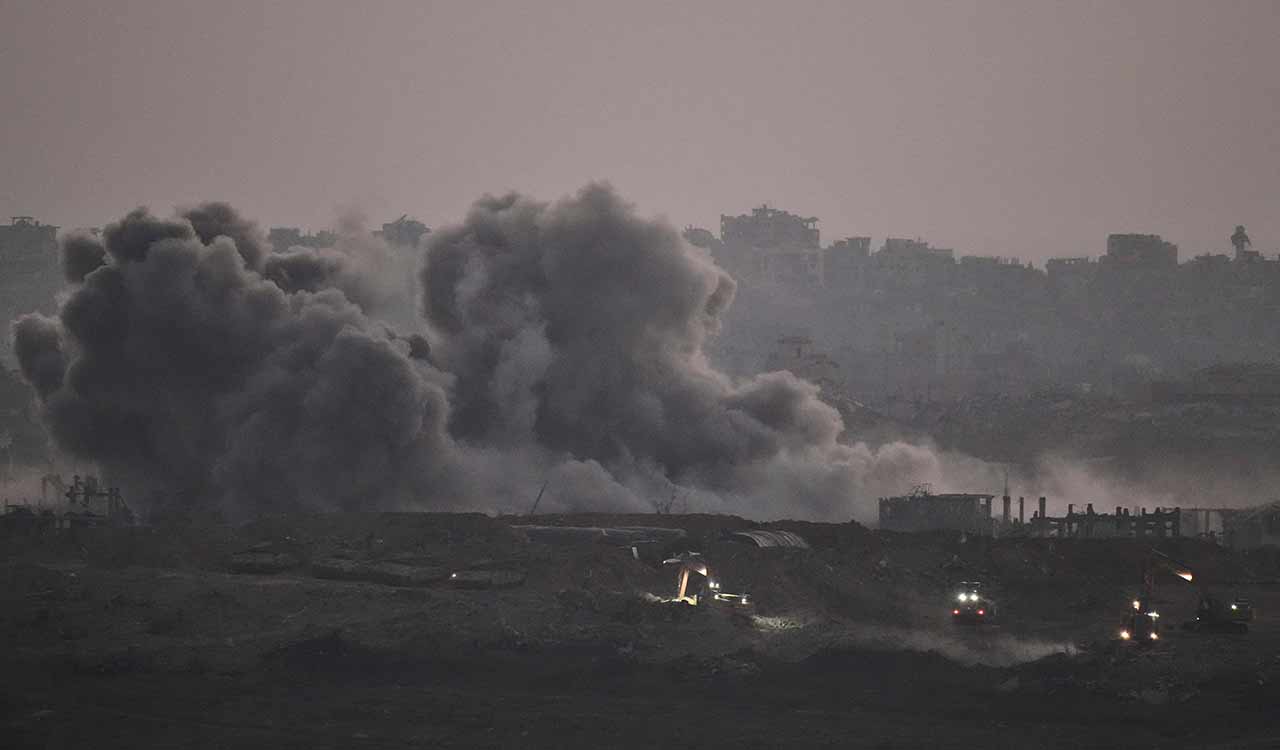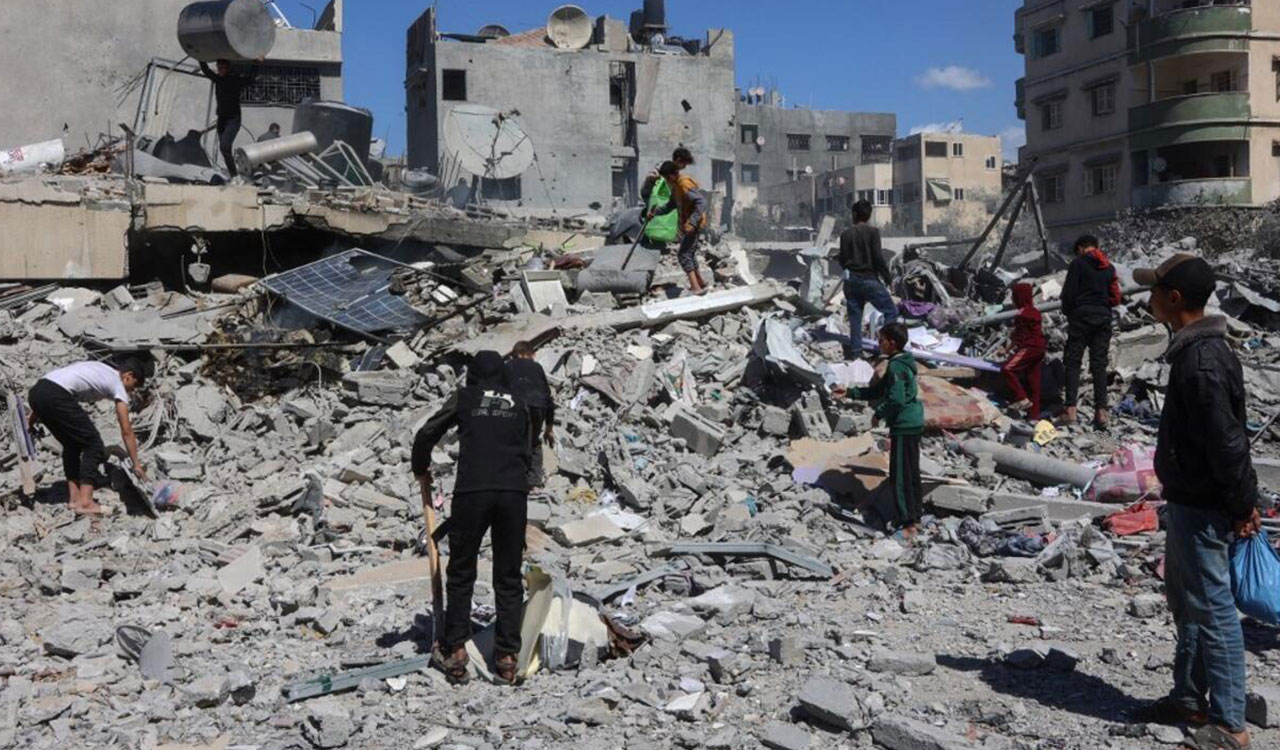Gaza City residents refuse to leave as Israel announces new ‘humanitarian zone’, expands military operations
Residents of Gaza City are refusing to evacuate despite Israel announcing a new “humanitarian zone” in Khan Younis, citing overcrowding, hunger, and unsafe conditions, as bombardments intensify and calls for ceasefire continue.

Gaza: Residents of Gaza City are refusing to leave, despite Israel’s announcement of a new “humanitarian zone” in southern Gaza’s Khan Younis ahead of its planned operation to capture Gaza City.
“They want us to move to a place that is already overcrowded,” Samer Abu Samra, a 38-year-old father of four, told Xinhua news agency on Saturday.
“We cannot afford transportation or tents. People are exhausted and suffering from hunger.”
“I lived displacement in the south before, and it was the worst experience of my life,” said Nasser al-Attar, a teacher in Gaza City.
“The south is not safe either, so staying here is not heroism. It is simply because there is no alternative.”
“We have nothing left to lose but our lives,” said Umm Mohammed Jaber.
“But displacement also means losing dignity, so we will remain here.”
Om Alaa Abu Ajwa, who had put up a tent near the Gaza beach, told Xinhua news agency that life in the south had become “impossible”.
“We decided to return despite the risks. At least we die in our city rather than in tents without water or food,” she said.
“They tried siege, starvation, and bombardment,” said 60-year-old Abu Luay outside his half-destroyed home in the al-Shati refugee camp in northern Gaza.
“Their goal is to evacuate the city, but we believe staying is the only option left,” he added.
According to estimates by local activists, about 80 per cent of Gaza City residents have chosen not to leave.
Earlier on Saturday, the Israel Defense Forces (IDF) announced the designated “humanitarian zone,” in a statement, “in light of the expansion of the ground operation in Gaza City and the takeover of Hamas strongholds as part of Operation Gideon’s Chariots II.”
It said the “humanitarian zone,” which contains key humanitarian infrastructure, will ensure the continued delivery of food, tents, medicines and medical equipment, Xinhua news agency reported.
Over the past weeks, the Israeli military has expanded its operations in Gaza City and other areas of the coastal enclave, saying the goal is to eliminate Hamas.
Palestinian sources said Israel’s targeting of residential towers has become more frequent in recent days.
On Friday, Israel levelled the 13-floor Mushtaha tower in western Gaza City, claiming that Hamas used the high-rise building to install intelligence-gathering equipment and position observation posts to monitor the location of IDF troops in the area.
The claim has been rejected by the tower’s administration, which said the building had only been hosting displaced civilians since it was damaged last year.
On Saturday, Israeli warplanes attacked the 15-floor al-Sousi tower, also in western Gaza City, reducing it to rubble within minutes and leaving nearby houses, shops, and streets heavily damaged.
Mahmoud Basal, spokesperson of the Civil Defence in Gaza, told Xinhua, “The bombardment aims to force residents to evacuate, turning entire neighbourhoods into empty areas.”
Calling the recent Israeli bombardments part of “a systematic policy of displacement,” Hamas on Saturday said in a press statement that it is committed to the 60-day ceasefire proposal presented by Qatar and Egypt on August 18, and is open to any ideas or proposals aimed at achieving a permanent ceasefire in Gaza.
Any future agreement must include a complete Israeli withdrawal from Gaza, the unconditional entry of humanitarian aid, and a genuine prisoner exchange deal through serious negotiations mediated by international actors, Hamas said.
Since the 2023 Hamas attack on southern Israel, which killed about 1,200 people and led to about 250 hostages being taken, Israel’s offensive in Gaza has killed more than 64,000 Palestinians and wounded 161,000, according to Gaza-based health authorities.
On Saturday, Qatari Prime Minister and Foreign Minister Sheikh Mohammed bin Abdulrahman bin Jassim Al Thani, in a phone call with British Foreign Secretary Yvette Cooper, urged stepping up regional and international efforts to end the brutal Gaza war, ensure the sustainable and unhindered flow of humanitarian aid, and secure the release of prisoners and detainees.
Related News
-
Cartoon Today on February 21, 2026
33 mins ago -
Mobile phones destroyed in fire in store in Kukatpally
45 mins ago -
Son of Indian immigrants leads case overturning Trump tariff order
49 mins ago -
AI and hologram technology bring Lord Krishna and Arjuna to life at Delhi summit
1 hour ago -
US trade deficit widens in December; India gap hits $58.2 billion
2 hours ago -
US shifts India, UK, EU to 10 per cent tariff after court ruling
2 hours ago -
Telangana HC hears plea over alleged extortion bid to withdraw PIL
10 hours ago -
Telangana HC quashes cases against Osmania University Arts College principal
10 hours ago




